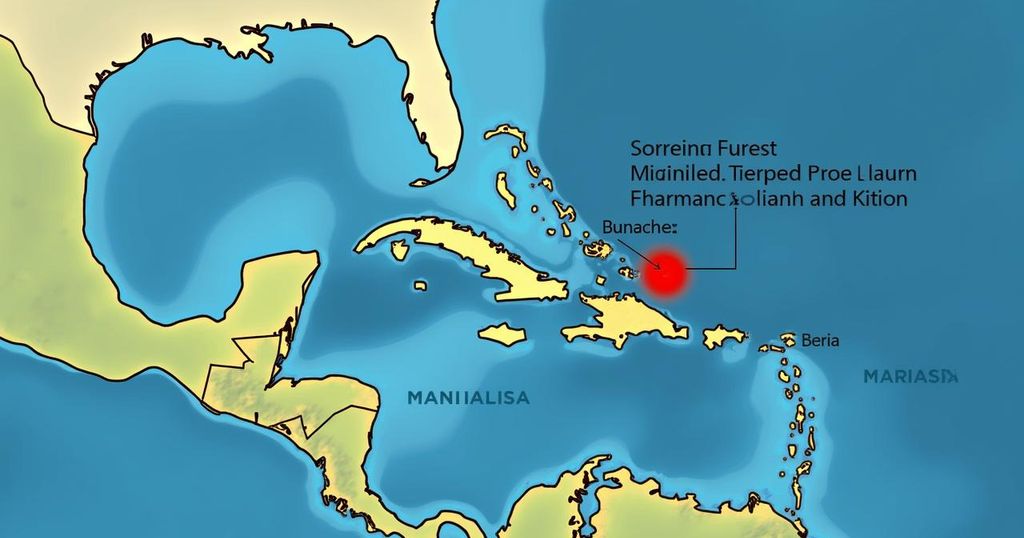Assessing Hurricane Risk: Evaluating Safe States for Homeownership
Hurricane Helene has caused extensive destruction, highlighting the pressing threat of natural disasters in the U.S. This year alone, severe weather has resulted in over $25 billion in damages, exacerbated by climate change. The anxiety surrounding home insurance and environmental risks is prompting buyers to seek properties in lower-risk states. Realtor.com now offers environmental risk scores, guiding homeowners to make informed choices amidst the rising prevalence of extreme weather.
Hurricane Helene has emerged as one of the most catastrophic storms in recorded history, resulting in over 215 fatalities and dislodging countless residents from Florida to Virginia. Nearly a week post-storm, approximately 730,000 homes are still without power, highlighting the ongoing repercussions of such natural disasters. In the current year alone, severe weather events have caused damages exceeding $25 billion across the United States. The influence of climate change is evident, as it has exacerbated the frequency and intensity of hurricanes, alongside an alarming 20% rise in global flooding occurrences since 2000 and a staggering 320% increase in wildfire damage in the U.S. since 1996. These extreme weather events have created a palpable sense of anxiety for homeowners, leading to a sharp increase in home insurance premiums. Some residents in disaster-prone areas, such as Florida, are opting to forgo insurance altogether in the face of climbing costs. Different regions bear unique risks; for example, residences in the West are susceptible to wildfires, while the Southeast primarily grapples with flooding issues. Additionally, properties in the southern states are increasingly susceptible to the detrimental effects of extreme heat, which has become pervasive across the nation. Homeowners directly impacted by Helene will likely endure lengthy recovery processes in the aftermath, with many potentially facing inadequate insurance coverage for necessary repairs and renovations. Meanwhile, others who escaped the storm’s path may find their concerns lingering, especially given Helene’s unexpected impact on regions previously thought to be insulated from hurricane damage. To address these apprehensions, Realtor.com provides an option for prospective buyers to assess their ‘environmental risk score’ for properties based on various hazards, including hurricanes and floods. According to economist Jiayi Xu, “Hurricanes present substantial challenges for homeowners, including property damage, increased financial costs, community recovery issues, and emotional stress. Opting for a property in states with a lower hurricane risk can help alleviate these concerns.” This tool allows buyers to make informed decisions about possible climate risks in different geographic areas, potentially leading them to select properties in safer locations. As the frequency of hurricanes and other natural disasters increases, certain states have emerged as having lower associated risks. Realtor.com has ranked states based on the percentage of homes situated in low-risk areas compared to high-risk zones. The findings aim to guide homeowners in identifying regions with minimal exposure to hurricane, flood, and fire damage. The list showcases various states with significant proportions of homes residing in lower-risk categories, offering hope for those seeking safety amidst the ongoing climate crisis.
The discussion surrounding hurricane safety and property risk has intensified, especially in light of the recent destructive storms like Hurricane Helene. With natural disasters causing increasing levels of damage and displacing residents, understanding the environmental risks associated with different regions is critical for prospective homeowners. The impact of climate change on weather patterns further complicates the landscape, emphasizing the necessity for informed real estate decisions based on environmental vulnerability. Realtor.com’s introduction of environmental risk scores is a novel approach to aiding potential homeowners in navigating these challenges effectively, thereby fostering safer housing choices.
In conclusion, the threat of hurricanes and other extreme weather events continues to loom large across the United States, causing significant distress and economic hardship for many homeowners. The introduction of environmental risk scores by Realtor.com presents a valuable resource for prospective buyers, enabling them to evaluate potential risks before purchasing property. With certain states exhibiting markedly lower risks of hurricane and flood damage, individuals seeking refuge from natural disasters have viable options available to them. As climate change continues to shape our environment, it is essential for homeowners to prioritize safety in their housing decisions.
Original Source: nypost.com




Post Comment